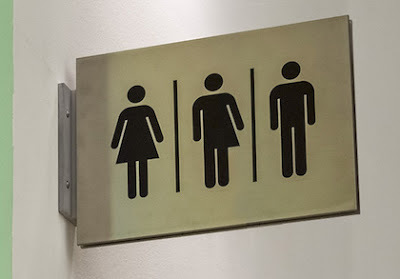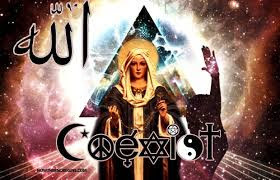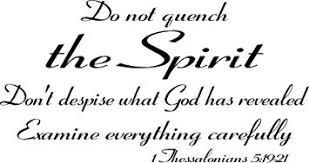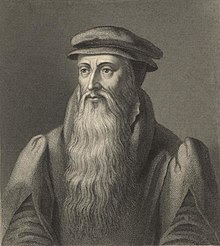Conrad Johnson's Blog, page 9
March 17, 2019
The Status of Non-Muslim Minorities Under Islamic Rule
 Dhimmitude:
the Islamic system of governing populations conquered by jihad wars, encompassing all of the demographic, ethnic, and religious aspects of the political system. The word "dhimmitude" as a historical concept, was coined by Bat Ye'or in 1983 to describe the legal and social conditions of Jews and Christians subjected to Islamic rule. The word "dhimmitude" comes from dhimmi, an Arabic word meaning "protected". Dhimmi was the name applied by the Arab-Muslim conquerors to indigenous non-Muslim populations who surrendered by a treaty (dhimma) to Muslim domination. Islamic conquests expanded over vast territories in Africa, Europe and Asia, for over a millennium (638-1683). The Muslim empire incorporated numerous varied peoples which had their own religion, culture, language and civilization. For centuries, these indigenous, pre-Islamic peoples constituted the great majority of the population of the Islamic lands. Although these populations differed, they were ruled by the same type of laws, based on the shari'a.
Dhimmitude:
the Islamic system of governing populations conquered by jihad wars, encompassing all of the demographic, ethnic, and religious aspects of the political system. The word "dhimmitude" as a historical concept, was coined by Bat Ye'or in 1983 to describe the legal and social conditions of Jews and Christians subjected to Islamic rule. The word "dhimmitude" comes from dhimmi, an Arabic word meaning "protected". Dhimmi was the name applied by the Arab-Muslim conquerors to indigenous non-Muslim populations who surrendered by a treaty (dhimma) to Muslim domination. Islamic conquests expanded over vast territories in Africa, Europe and Asia, for over a millennium (638-1683). The Muslim empire incorporated numerous varied peoples which had their own religion, culture, language and civilization. For centuries, these indigenous, pre-Islamic peoples constituted the great majority of the population of the Islamic lands. Although these populations differed, they were ruled by the same type of laws, based on the shari'a.This similarity, which includes also regional variations, has created a uniform civilization developed throughout the centuries by all non-Muslim indigenous people, who were vanquished by a jihad-war and governed by shari'a law. It is this civilization which is called dhimmitude. It is characterized by the different strategies developed by each dhimmi group to survive as non-Muslim entity in their Islamized countries. Dhimmitude is not exclusively concerned with Muslim history and civilization. Rather it investigates the history of those non-Muslim peoples conquered and colonized by jihad.
Dhimmitude encompasses the relationship of Muslims and non-Muslims at the theological, social, political and economical levels. It also incorporates the relationship between the numerous ethno-religious dhimmi groups and the type of mentality that they have developed out of their particular historical condition which lasted for centuries, even in some Muslim countries, till today.
Dhimmitude is an entire integrated system, based on Islamic theology. It cannot be judged from the circumstantial position of any one community, at a given time and in a given place. Dhimmitude must be appraised according to its laws and customs, irrespectively of circumstances and political contingencies. LEARN MORE AT http://dhimmitude.org
Published on March 17, 2019 12:19
March 7, 2019
Queer Theory: An attack on the concept of a fixed sexual identity

The last decade has seen the rise of a new ideology in the West, and increasingly also in other parts of the globe. It has sometimes been described as ‘Transgenderism’, and sometimes as ‘Queer Theory’. It differs from previous movements in that it does not specifically push for either sexual promiscuity or ‘gay rights’. Rather, it is an attack on the whole concept of a fixed sexual identity. Queer theory involves a critique of all that used to be labelled ‘normal’ when it comes to sexuality and gender, and it has crowned the transsexual community as the heroes of our time. In this article I will explore some key aspects of this trend, including a biblical analysis of its claims and consequences.
See more: http://evangelicalfocus.com/blogs/4207/Queer_Theory_An_attack_on_the_concept_of_a_fixed_sexual_identity
Published on March 07, 2019 08:30
March 5, 2019
February 20, 2019
More End Times Analysis from Scripture and Church History
Reformed Eschatology (Amillennial) Since the ReformationRev. Charles J. Terpstra
This is not to say, however, that the Reformers did not have a firm, orthodox belief of the last things. They certainly did, as other articles in this special issue demonstrate. In simple, straightforward fashion they followed the teaching of Scripture concerning the hope of the church. They understood this present age to be the so-called millennium of Revelation 20:1-6 and the last before the return of Christ. They believed the end of this age would be marked by increasing wickedness in the world and apostasy in the church, culminating in the rise of the antichrist. They held to the personal, visible, glorious coming (only one!) of Christ when all things were full according to God's counsel. They embraced the truth of the bodily resurrection of all the dead, the final, public judgment, and the re-creation of the heavens and the earth by Christ upon His return. And they believed the everlasting states of the righteous and wicked - unending bliss with God in the new creation for the former, and unending torment in hell for the latter. The Reformation doctrine of the last things may be seen (and read), for example, in the brief but beautiful thirty-seventh article of the Belgic Confession.
READ MORE
This article appeared in The Standard Bearer, Vol. 76; No. 2; October 15, 1999. Rev. Terpstra is pastor of the Protestant Reformed Church of Holland, MichiganIt is probably well known that the Reformation did not develop Christian doctrine in the area of eschatology very strongly. In part this was due to the fact that, in general, the Reformers accepted the long-standing, amillennial eschatology of Augustine set forth c. AD 400. And partly this was due to the fact that the various doctrines that belong to eschatology were not all that controversial at the time of the Reformation. An exception to this was the chiliast error (literal millennialism, i.e., thousand-year reign of Christ on earth) that arose again in the church, this time in the Anabaptist camp. The Reformers rejected this, as had Augustine twelve centuries earlier and the church consistently thereafter. Perhaps another controversial area was the Reformers' view of the Antichrist, whom most believed to be the Roman Catholic papacy.
This is not to say, however, that the Reformers did not have a firm, orthodox belief of the last things. They certainly did, as other articles in this special issue demonstrate. In simple, straightforward fashion they followed the teaching of Scripture concerning the hope of the church. They understood this present age to be the so-called millennium of Revelation 20:1-6 and the last before the return of Christ. They believed the end of this age would be marked by increasing wickedness in the world and apostasy in the church, culminating in the rise of the antichrist. They held to the personal, visible, glorious coming (only one!) of Christ when all things were full according to God's counsel. They embraced the truth of the bodily resurrection of all the dead, the final, public judgment, and the re-creation of the heavens and the earth by Christ upon His return. And they believed the everlasting states of the righteous and wicked - unending bliss with God in the new creation for the former, and unending torment in hell for the latter. The Reformation doctrine of the last things may be seen (and read), for example, in the brief but beautiful thirty-seventh article of the Belgic Confession.
READ MORE
Published on February 20, 2019 17:57
Best Legal Analysis of Trump's National Emergency Declaration

The President has just declared a National Emergency on our southern border. He has stated that he will reapportion funds to combat this national emergency through the construction of a border wall.In declaring the National Emergency, President Trump stated he was doing so to address a “national security crisis.” He highlighted the increased problem of drugs, gangs, violent crime, and human trafficking coming across the southern border.The ACLJ has prepared an extensive legal analysis of this issue and concluded that, based on the facts at hand, the President has both the constitutional and statutory authority to declare such a National Emergency and to secure funding for a wall on our southern border.Read full article here
Published on February 20, 2019 11:32
Evangelism and Apologetics in the 21st Century
The recently deceased Anglican evangelist, Michael Green, author of many influential books, offers this thought provoking message on how to share Christ in today's darkening climate of world skepticism, false religions and hedonistic idolatry. His primary audience throughout his life was undergraduate college students who face an attack on their faith at the intellectual level.
Published on February 20, 2019 09:22
February 17, 2019
Has Christianity Failed?
 A Sermon on Luke 18:8I tell you, he will give justice to them speedily. Nevertheless, when the Son of Man comes, will he find faith on earth?” (ESV)Has Christianity failed? the greatest cause of man's troubles; the social effects of Christianity as revealed by history; Christianity never promises to bring peace to this world; is Christianity selfish? the message of God's plan of salvation.LISTEN HERE: https://www.mljtrust.org/sermons-online/luke-18-8/has-christianity-failed/
A Sermon on Luke 18:8I tell you, he will give justice to them speedily. Nevertheless, when the Son of Man comes, will he find faith on earth?” (ESV)Has Christianity failed? the greatest cause of man's troubles; the social effects of Christianity as revealed by history; Christianity never promises to bring peace to this world; is Christianity selfish? the message of God's plan of salvation.LISTEN HERE: https://www.mljtrust.org/sermons-online/luke-18-8/has-christianity-failed/
Published on February 17, 2019 09:12
February 8, 2019
Pope Takes One Step Closer to a One World Religion

[Micael Snyder | Charisma News] A historic interfaith covenant was signed in the Middle East on Monday, and the mainstream media in the United States has been almost entirely silent about it. Sheikh Ahmed al-Tayeb is considered to be the most important imam in Sunni Islam, and he arrived at the signing ceremony in Abu Dhabi with Pope Francis “hand in hand in a symbol of interfaith brotherhood.” But this wasn’t just a ceremony for Catholics and Muslims. According to a British news source, the signing of this covenant was done “in front of a global audience of religious leaders from Christianity, Islam, Judaism and other faiths”:
The pope and the grand imam of al-Azhar have signed a historic declaration of fraternity, calling for peace between nations, religions and races, in front of a global audience of religious leaders from Christianity, Islam, Judaism and other faiths.Read full article here
Published on February 08, 2019 18:23
February 4, 2019
Classic Book Review: The Puritans
The Puritans: Their Origins and Successors is a compilation of yearly presentations given by Martyn Lloyd-Jones at the Puritan Studies and Westminster Conferences between 1959 and 1978.The Doctor ranges widely over the history of Reformed Christianity from the Reformation to the nineteenth century, drawing lessons from major figures like Calvin and Knox, Bunyan and Owen, Edwards and Whitefield, and from lesser known men such as Henry Jacob, John Glas and Robert Sandeman.
I've been a serious disciple of Lloyd-Jones' teaching for several years now, listening to his sermons daily which have been recorded for posterity sake on mljtrust.org. He has been called the last of the Puritan preachers for good reason. Not only is his grasp of doctrine sound and convincing, you can hear in his voice what Whitefield called 'the thunder, the lightning and the rainbow' of Spirit inspired prophesying, something that is sorely lacking in the modern church of feel good pluralism and liberalism that all but denies the Doctrine of Sin. And if Christ came not to save humanity from its sin and condemnation through the self sacrificial atonement of the cross, what then? So after reading several of his books, one which I reviewed here, it only seems logical that a very late bloomer like me should come to this book, The Puritans, with a desperate need for a solid starting point from which to survey Protestant church history because studying and reading doctrine exclusively only leaves you lopsided or walking around in circles like a man with one foot tied to the floor.
Now I have to tell you right away that if you're one of those crazed fad junkies that is only looking for the latest and greatest book on doctrine or theology (or worse yet, some 'self help' guide), I can point you to many contemporaries who all have been used by God in some fashion such as John Piper, John McArthur, Rick Warren, James White, Steve Dawson, Francis Chan and others from the Protestant bench, but if you want classic teaching that survives the grave and points solidly back to New Testament times without the pop psychology that has permeated so many pulpits today, give Lloyd-Jones a try and use him, like I did, as a stepping stone and guide back into the remarkable writings and pastoral teachings of the Puritans. For me, and as I hope for you, it will be a journey into church history sublime. And I'm sure Dr. Lloyd-Jones would agree that it's our Christian duty, all of ours, to examine ourselves and the growth of the Bride of Christ throughout the running centuries. How dare we neglect so great a salvation?
But back to the book...
I venture to say that, perhaps, many of us are only superficially familiar with the Puritans, either through a brief course in seminary or by way of an American history class in school. They are forever demonized in the story of the Salem Witch trials and, maybe to a certain degree, rightly so. Because of our sin nature, every outpouring of the Spirit that manifests itself in revival always leads to excess in one way or another and the Puritans and Reformers were not immune. Lloyd-Jones does an excellent job of balancing their spirituality with their flawed humanity. The gift of time offers a perspective that is invaluable to someone like The Doctor who has a keen grasp of events and lives from an analytical mind. Just like the surgeon he was before he became a preacher, he is able to dissect to the core of the issue and isolate the work of God in the lives of these mighty men who shaped the Protestant church for centuries to come.
For example, I'm currently reading the massive and definitive work on the Holy Spirit by the Puritan preacher and theologian, John Owen, arguably the greatest Doctor of Divinity the Reformed church has ever known. Lloyd-Jones addresses this man's legacy in the chapter, "John Owen on Schism" --a topic that fires the damned soul of Satan because nothing pleases the Evil One more than to create chaos and unity between God's chosen people.
Lloyd-Jones takes schism very seriously and praises Owen's "spirit by which he addresses this topic" by quoting him:
I confess I would rather, much rather, spend all my time and days in making up and healing the breaches and schisms that are amongst Christians than one hour in justifying our divisions, even therein wherein, on the one side, they are capable of a fair defense. But who is sufficient for such an attempt? The closing of differences, amongst Christians is like opening the book in the Revelation--there is none able or worthy to do it, in heaven or in earth, but the Lamb: when He will put forth the greatness of His power for it, it shall be accomplished, and not before. In the meantime, a reconciliation amongst all Protestants is our duty, and practicable, and had perhaps ere this been in some forwardness of accomplishment had men rightly understood whirring such a reconciliation, according to the mind of God, doth consist. When men have labored as much in the improvement of the principle of forbearance as they have done to subdue other men to their opinions, religion will have another appearance in the world.
And Lloyd-Jones adds, "Let us say, 'Amen.'"
In other words, you have to look at the Puritans for who they were and not for what bad history or teaching might tell you about them. In each of these chapters, given in subsequent years, you will come to discover that the Puritans were just like men and women of all time with the 'mumps and measles of the soul' as we all have. The difference was that they were used by God in a most astounding way in a particular outpouring of the Spirit that shook the very foundations of Christendom and rattled the gates of hell. They were men and women who came from all walks of life and lived with the kingdom of heaven tattooed upon their eyeballs. And the gospel truth is that wherever Christ appears to his bride, the Church, to more sanctify her for His blessed return, you can be sure that that old serpent will raise his ugly head and try to undo what can't be undone.
What was also of special interest to me was his 1968 presentation entitled, "William Williams and Welsh Calvinistic Methodism". Now here he talks about this nobody from nowhere, some country boy from Wales who God used to help start the 1904-1905 Welsh Revival which resonated throughout all of England eventually. Revival was of particular interest to Lloyd-Jones as he correctly foresaw the desperate need of a genuine outpouring of the Spirit for the church in this day and age. Yet so many evangelicals are afraid of the emotionalism that is mistaken for revival and which tends to an excess of phenomena. Calvinist Methodism sounds like a contradiction in terms but The Doctor explains what happened in this way:
Calvinistic Methodism saves Methodism from degenerating into mysticism. There is always this danger. Put your emphasis on feeling, upon the 'felt' aspect, and you are already in danger of degenerating into mysticism, or into a false asceticism, or into a kind of 'illuminism'. And all these, of course, have made their appearance in history. But Calvinistic Methodism saves us from that because of its great emphasis upon the doctrines. Here, you have got the doctrines, but in addition you have go this other element, the 'felt' element; It is a perfect combination of both. Not only does it guarantee our doctrinal correctness, it also saves us in the realm of experience itself from many aberrations, which have often ended in what seems to me to be nothing but a kind of Spiritism. Calvinistic Methodism saves us from that. So I argue that Calvinistic Methodism is true Methodism.
For more on Lloyd-Jones teaching from Scripture about the Holy Spirit during times of revival, I recommend visiting this series of lectures from his trust site: Baptism of the Spirit. We do ourselves a great disservice as Christians if we allow the enemy to deprive us of this wonderful doctrine and teaching and let God apply it to our lives because of a few fanatical elements that are always present in the church. God's peace.

Published on February 04, 2019 20:14
Film Review: Knox
 John Knox (1513-1572)
John Knox (1513-1572)Hard times require a hard gospel. Christ himself said, "Do not think that I came to bring peace on the earth: I did not come to bring peace but a sword." -- Matthew 10:34.
The 2015 documentary, Knox, spotlights the political and religious turmoil that this Scottish Reformation preacher lived through during the bloody strife of English Civil War and the period of Scotland's international intrigue while Protestantism struggled to take hold in an era dominated by Roman Catholic church state hegemony. The break from a formal religion that dominated Europe for fifteen centuries was not clean nor easy and, many would argue, still continues to this day but on a more subtle level.
Knox was a man that God made and used for his time. Born of humble circumstances in a backwater country, Knox learned to read and write and then came under the influence of diehard Reformers that shaped his quick mind with doctrinal precision, making him a formidable apologist of Scripture and preacher of the Word sans ceremony or liturgical flourish that the Protestants considered Romish and idolatrous.
Knox, the documentary does a very good job in 77 minutes of summarizing the major episodes of this man's formative and mature years with almost equal weight using the thoughtful narration of Philip Todd, guiding the viewer through the historic places that Knox tread upon in Scotland, such as in Edinburgh, Glasgow, St. Andrews, Haddington and other beautiful camera takes throughout the countryside. Authentic Scottish voice overs during animation scenes add a fuller dimension to the documentary. Almost single handedly and with great passionate fervor, John Knox lit the fire of steadfast Protestant Reformation and changed the religious landscape of Britain, and eventually that of America, through his relentless teaching, preaching, traveling and fighting with arms if necessary so that the gospel truth could be brought to everyone in Presbyterian church format.
It's difficult to find a well done documentary on church history these days that is not infected with liberalism and secular bias, so Knox is a great catch and a powerful reminder that we shouldn't take our faith for granted or others will take it away from us eventually. If you are more interested in John Knox, I recommend the thoroughly researched biography by Jasper Ridley for further study.
Published on February 04, 2019 18:33
Conrad Johnson's Blog
- Conrad Johnson's profile
- 47 followers
Conrad Johnson isn't a Goodreads Author
(yet),
but they
do have a blog,
so here are some recent posts imported from
their feed.



